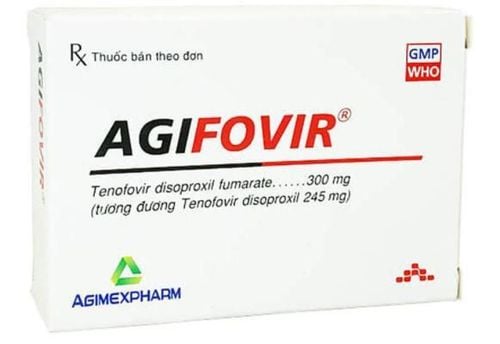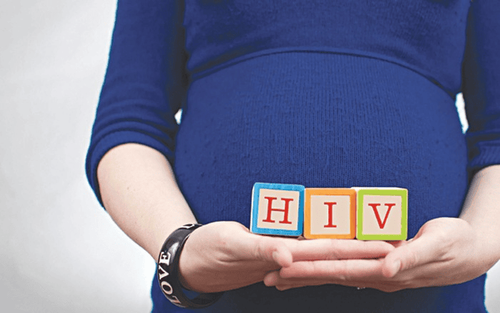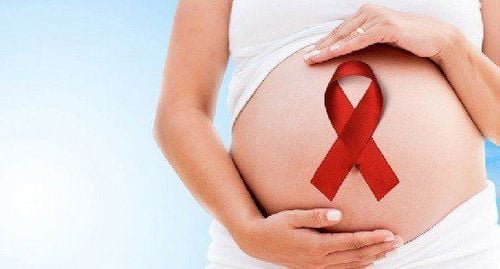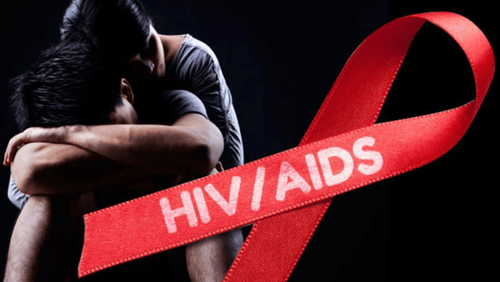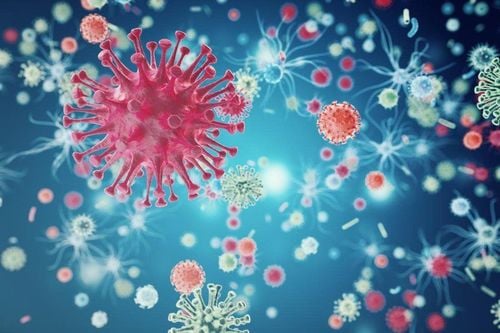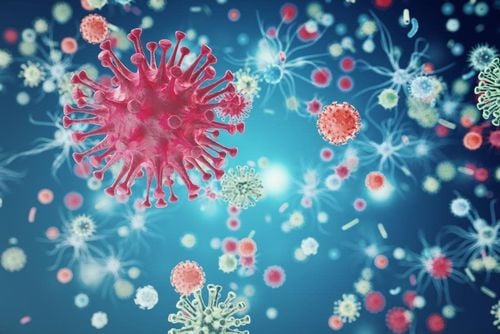This is an automatically translated article.
Up to now, there is still no definite answer on whether mothers with HIV should breastfeed their babies or not. To minimize the risk of infection, the application of measures to prevent HIV transmission from mother to child is essential.
1. Is HIV transmitted through breastfeeding?
According to a study by the World Health Organization (WHO), for every 100 pregnant women infected with HIV, about 10 babies will be born with HIV transmission while breastfeeding. In which, about 20% of children will be infected when exclusively breastfed, if mixed feeding but not exclusively breastfed, the infection rate is about 25-35%, and for children who are breastfed until 24 months, the HIV infection rate is about 30-45%.
HIV transmission from mother to child during breastfeeding is one of the three recommended stages, so it can be confirmed that HIV is transmitted through breastfeeding. However, in order to minimize the risk of mother-to-child transmission, international organizations related to infant feeding such as UNICEF, UNFPA, WHO, UNAIDS have recommendations: "When food substitutes are accepted, , families are economically viable and can be safely maintained, avoidance of breastfeeding with HIV-infected infants is recommended". However, to be able to decide whether or not a mother with HIV should breastfeed her baby depends on many factors.
Currently, many mothers, knowing they are infected with HIV, but still want to have a baby, in addition to strictly complying with measures to prevent HIV transmission, also choose to feed their babies exclusively with formula milk (not to be replaced by breast milk). fruit juice, porridge, powder or sugar water for children under 6 months old). This method can help reduce the risk of HIV transmission from mother to child safely and effectively.

Theo thống kê, cứ 100 phụ nữ mang thai bị nhiễm HIV thì sẽ có khoảng 10 đứa trẻ sinh ra bị lây truyền HIV trong giai đoạn bú sữa mẹ
2. How to breastfeed safely when mother has HIV
Breastfeeding HIV-infected mothers increases the risk of mother-to-child transmission of the virus. Therefore, the recommended measure to prevent HIV transmission from mother to child is to breastfeed with replacement milk.
In particular, mothers infected with HIV during childbirth should choose only one method of feeding, or exclusively breastfeed their children and strictly follow the treatment regimen of the doctor (if the family's conditions do not allow it). ; Or give your baby formula entirely. Absolutely do not give the baby both breast milk and formula milk because that will increase the risk of infection.
In fact, there are many types of infant formula milk, which is researched and produced on a modern, closed line and is capable of providing the necessary nutrients for growth. healthy children, so mothers can completely rest assured when giving formula milk. However, when using formula milk, it is necessary to ensure that the preparation stage is hygienic and that the milk is properly mixed so that the baby does not have diarrhea or malnutrition.
In the event that there is no other choice that leads to compulsory breastfeeding, it is necessary to clean the nipples and give the baby only breast milk, not any other food or water. drink in another. When you feel that your baby is strong (6 months or more), you should stop breastfeeding as soon as possible and immediately switch to alternative foods such as powder, porridge or formula. At the same time, children born to HIV-infected mothers should have regular and specialized health check-ups to be monitored and tested for disease screening and treatment to prevent the risk of infection.
3. Prophylactic treatment when an HIV-infected mother is breastfeeding

Việc điều trị dự phòng lây truyền HIV cho trẻ bú sữa mẹ bị nhiễm HIV là cần thiết
Although the concentration of HIV virus in breast milk is not high, there is still a chance that HIV can be transmitted through breastfeeding. This is because when babies are breastfed directly, HIV virus contained in milk can penetrate through the lining of the baby's tongue, mouth or gums to attack the immature body, especially when the child has oral disease. In addition, when the mother's breast is infected or has cracks or bleeding, the HIV virus will follow the blood into the baby's mouth and penetrate the mucous membranes and transmit HIV from mother to child.
However, the benefits of breastfeeding are undeniable, because breast milk not only contains optimal nutrients for the overall development of the baby, but also provides the necessary antibodies to help protect children against diseases that cause death. Therefore, treatment to prevent HIV transmission to HIV-infected breastfed infants is essential. According to a WHO study, if HIV-infected mothers or their infants receive preventive treatment and antiretroviral drugs, their babies are allowed to breastfeed, because the risk of mother-to-child transmission of HIV pathogens is very high. small.
In summary, in order to be able to give the best option for HIV-infected mothers in choosing how to raise their children, it is necessary to have careful advice from health workers on nutrition and immunity. as well as the risk of transmission of pathogens when an HIV-infected mother is breastfeeding; or the benefits and risks of using alternative foods, if you decide to breastfeed, how to ensure safety and reduce the infection rate to a minimum.
Please dial HOTLINE for more information or register for an appointment HERE. Download MyVinmec app to make appointments faster and to manage your bookings easily.
General sources: National Institute of Nutrition; Department of HIV/AIDS Prevention and Control



